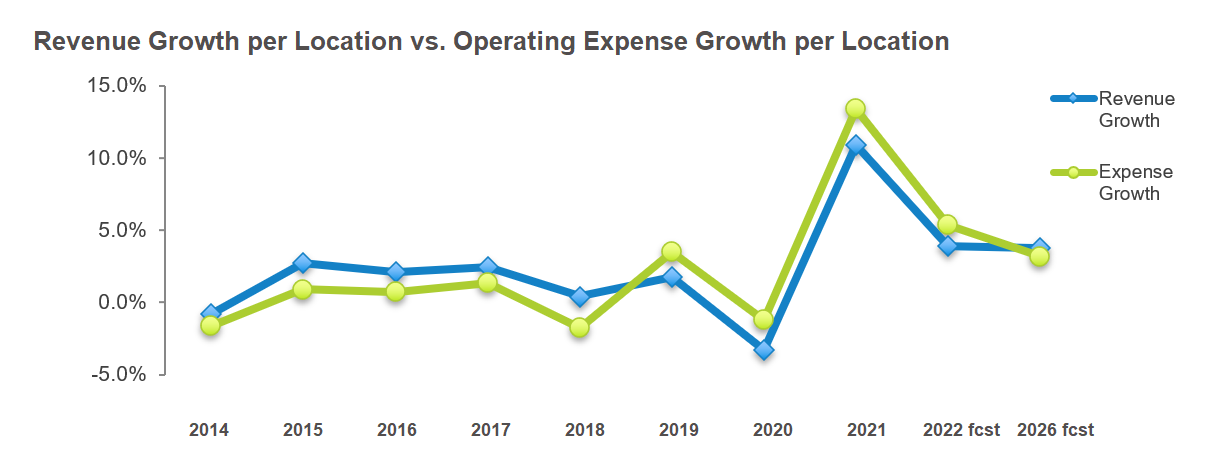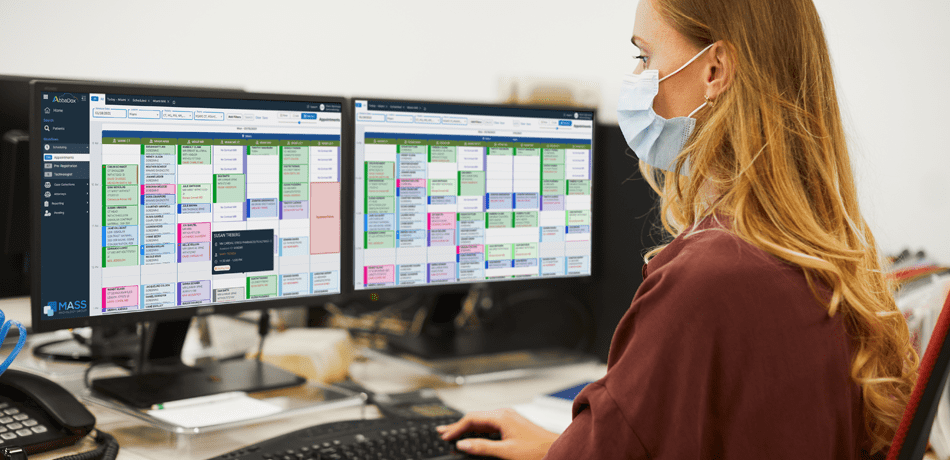Phase 3 of the Modern Patient Journey: Automated Arrival and Intake Workflows
From the moment a patient makes an appointment, they’re evaluating their experience with your imaging center. What type of experience do you want to greet your patients (and staff) when they step inside?
There are several benefits to streamlining the arrival and intake workflows, including:
- Reduction in operational costs
- Fewer manual errors
- Shorter wait times
- Convenience for administrative staff and patients

Eliminate Scheduling Bottlenecks
Unfortunately, much of the scheduling process at radiology practices (including paperwork) remains manual and complex. When you give patients an easy experience, they will keep coming back, referring physicians will continue to send them, and your staff will be less apt to experience burnout.
Want to see a streamlined operation in action? Register for our complimentary webinar on July 14th at 2pm.
Interested in seeing an Industry Benchmarking report on U.S. diagnostic imaging centers?
Register to download our report from Kentley Insights (a $295 value).
If you’re not taking advantage of automated, digitized arrival and intake workflows, your practice is missing out. And with operating costs accounting for 85.3% of practice revenues, every opportunity to streamline operations while reducing expenses can be considered a big win.
Here are some of the most effective ways to improve your customer experience through an automated arrival and intake workflow.
1. Patient-Empowered Preregistration
With a patient portal and robust patient engagement solutions, practices can empower their patients to self-schedule, confirm, cancel, or change appointments as needed, without any manual intervention by front-office staff. Paperwork and even visit estimates can also be made available to patients ahead of time in their portal to speed up their arrival and intake experience. This limits the in-office wait times and paperwork required at the time of visit. Patient-empowered appointment scheduling and preregistration are preferred by practice managers and patients alike. In fact, research shows that 80% of patients prefer physicians and specialists who offer online scheduling.
2. Integrated Billing and Collection Applications
Managing changing reimbursements and contract requirements is challenging enough, but when your practice has separate systems for scheduling and billing, it makes the process even more convoluted for administrative and billing staff. Through integrated billing and payment solutions, practices can drastically reduce the time spent on eligibility verification, billing, and payment collection. Patients will know the exact amount owed ahead of time and can easily make a payment through the patient portal even before their appointment, thus improving your cash flow and reducing the number of days in A/R. And with increasing regulations like the No Surprises Act, practices can ensure compliance and pricing transparency without additional manual work.
3. Streamlined Arrival Process
Automated intake forms that integrate within the RIS can help practices eliminate more costly and cumbersome paper-based workflows and ensure their patients are ready for their appointments from the moment they arrive. Completed forms automatically attach to the patient record and appointment details without any scanning or time-consuming manual input from administrative staff.
Are you ready to improve your operations and reduce expenses while enhancing the patient experience?
Read more about key focuses for Phase 1 and Phase 2 of the patient journey in our recent blogs!

-1.png)







